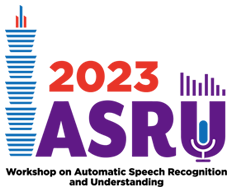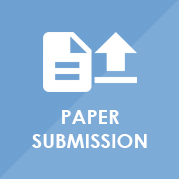Tutorial 1 - AutoML for Speech and Language Processing
- Article Category: TUNTORIALS
- 9/27/2023
Abstract
Automated Machine Learning (AutoML) is an emerging field that has potential to impact how we build models in Speech and Language Processing (SLP). As an umbrella term that includes topics like hyperparameter optimization and neural architecture search, AutoML has recently become mainstream at major conferences such as NeurIPS, ICML, and ICLR. The inaugural AutoML Conference was started in 2022, and with this community effort, we expect that deep learning software frameworks will begin to include AutoML functionality in the near future.
What does this mean to SLP? Currently, models are often built in an ad hoc process: we might borrow default hyperparameters from previous work and try a few variant architectures, but it is never guaranteed that final trained model is optimal. Automation can introduce rigor in this model-building process. For example, hyperparameter optimization can help SLP researchers find reasonably accurate models under limited computation budget, leading to fairer comparison of proposed and baseline methods. Similarly, neural architecture search can help SLP developers discover models with the desired speed-accuracy tradeoffs for deployment.
This tutorial will summarize the main AutoML techniques and illustrate how to apply them to improve the SLP model-building process. The goal is to provide the audience with the necessary background to follow and use AutoML research in their own work. In the first part of the tutorial, we will explain the basics of hyperparameter optimization and neural architecture search, covering representative algorithms such as Bayesian Optimization, Evolutionary Strategies, Asynchronous Hyperband, and DARTS. In the second part, we will discuss practical issues of applying AutoML to SLP, including evaluation, multiple objectives, carbon footprint, and software design best practices.

Kevin Duh is a senior research scientist at the Johns Hopkins University Human Language Technology Center of Excellence (HLTCOE) and an assistant research professor in the Department of Computer Science. His research interests lie at the intersection of SLP and Machine Learning. He has given several conference tutorials on the topics of machine learning and machine translation at, e.g., EACL 2023, AMTA 2022, SLTU 2018, IJCNN 2017, DL4MT Winter School 2015. Selected publications relevant to the AutoML topic include: (Moriya et al., 2019; Zhang and Duh, 2020; Zhang et al., 2023).

Xuan Zhang is a Ph.D. student in the Department of Computer Science at Johns Hopkins University (JHU). She performs research in Machine Translation, with specific interests in Sign Language Translation, Hyperparameter Optimization, Curriculum Learning, and Domain Adaptation. She co-presented the AutoML tutorial at AMTA 2022 and EACL 2023.







 secretariat@asru2023.org
secretariat@asru2023.org


